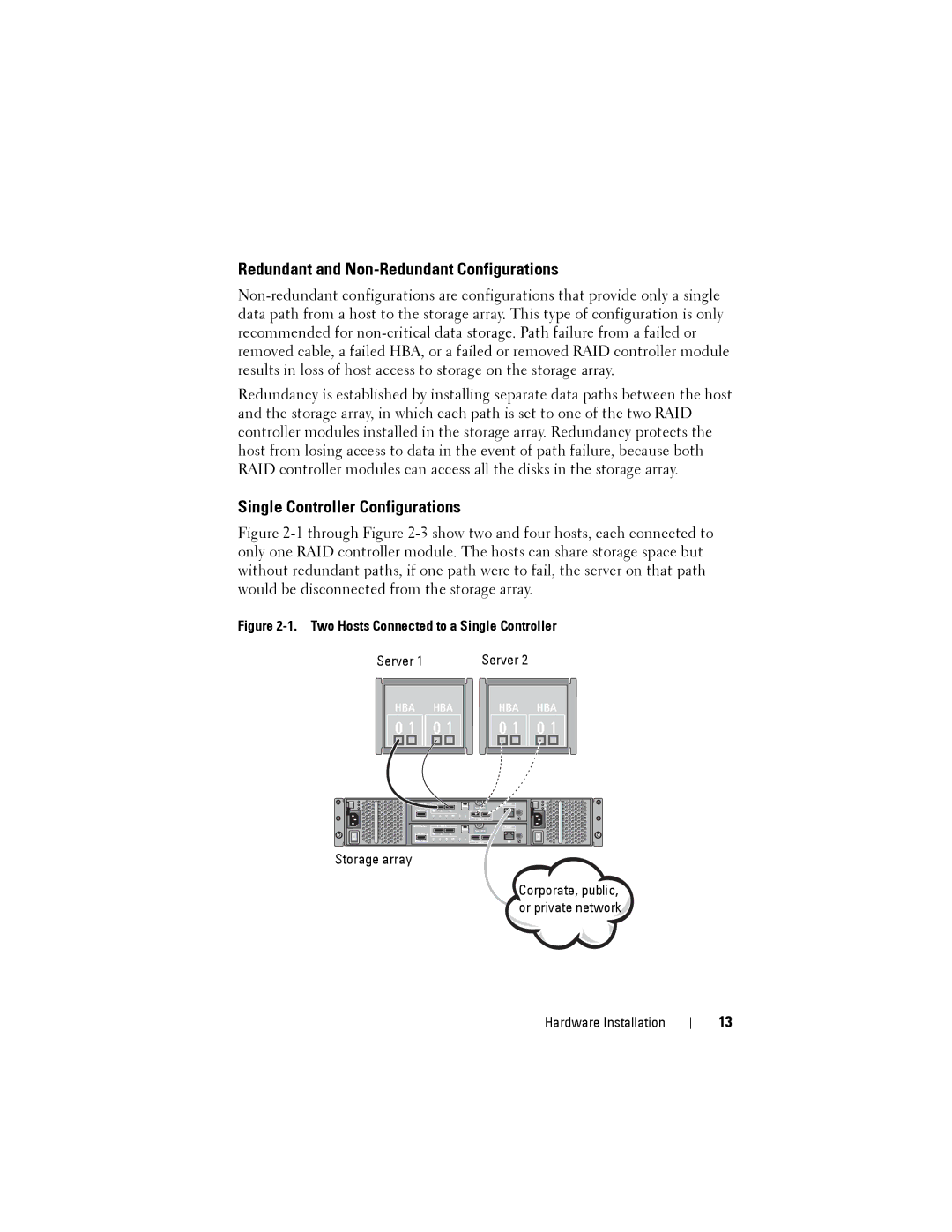
Redundant and Non-Redundant Configurations
Redundancy is established by installing separate data paths between the host and the storage array, in which each path is set to one of the two RAID controller modules installed in the storage array. Redundancy protects the host from losing access to data in the event of path failure, because both RAID controller modules can access all the disks in the storage array.
Single Controller Configurations
Figure 2-1 through Figure 2-3 show two and four hosts, each connected to only one RAID controller module. The hosts can share storage space but without redundant paths, if one path were to fail, the server on that path would be disconnected from the storage array.
Figure 2-1. Two Hosts Connected to a Single Controller
Server 1 | Server 2 | |||||||||
|
|
|
|
|
|
|
|
|
|
|
|
|
|
|
|
|
|
|
|
|
|
|
|
|
|
|
|
|
|
|
|
|
|
|
|
|
|
|
|
|
|
|
|
|
|
|
|
|
|
|
|
|
|
|
|
|
|
|
|
|
|
|
|
|
|
|
|
|
|
|
|
|
|
|
|
|
|
|
|
|
|
|
|
|
|
|
|
|
|
|
|
|
|
|
|
|
|
|
Storage array
Corporate, public, or private network
Hardware Installation
13
